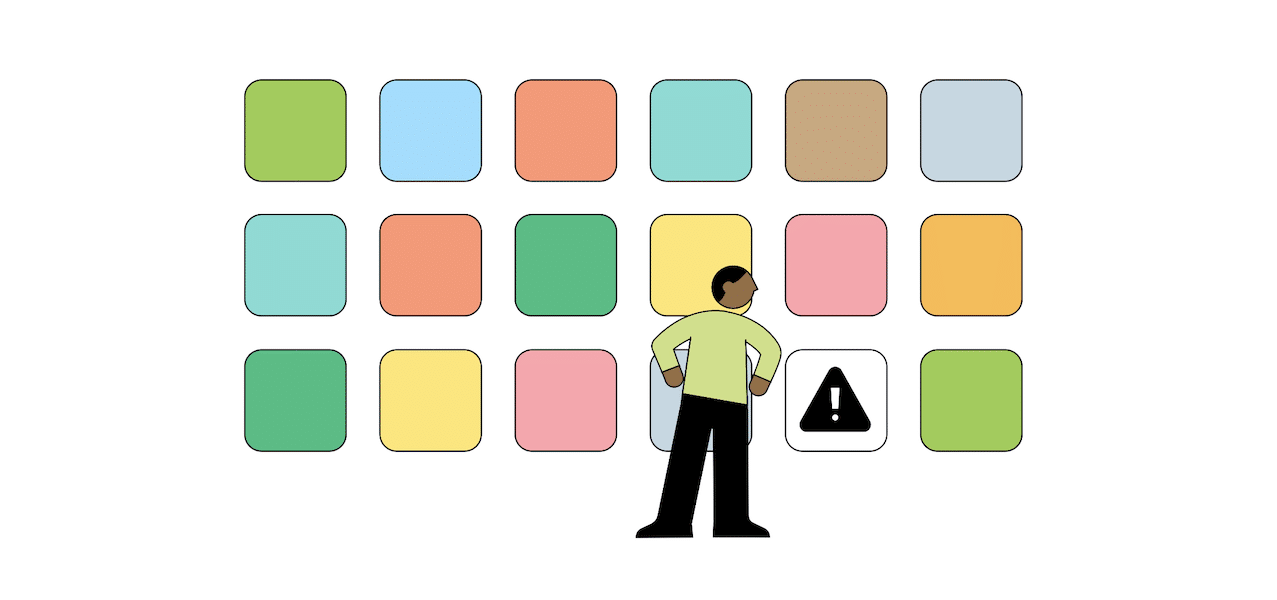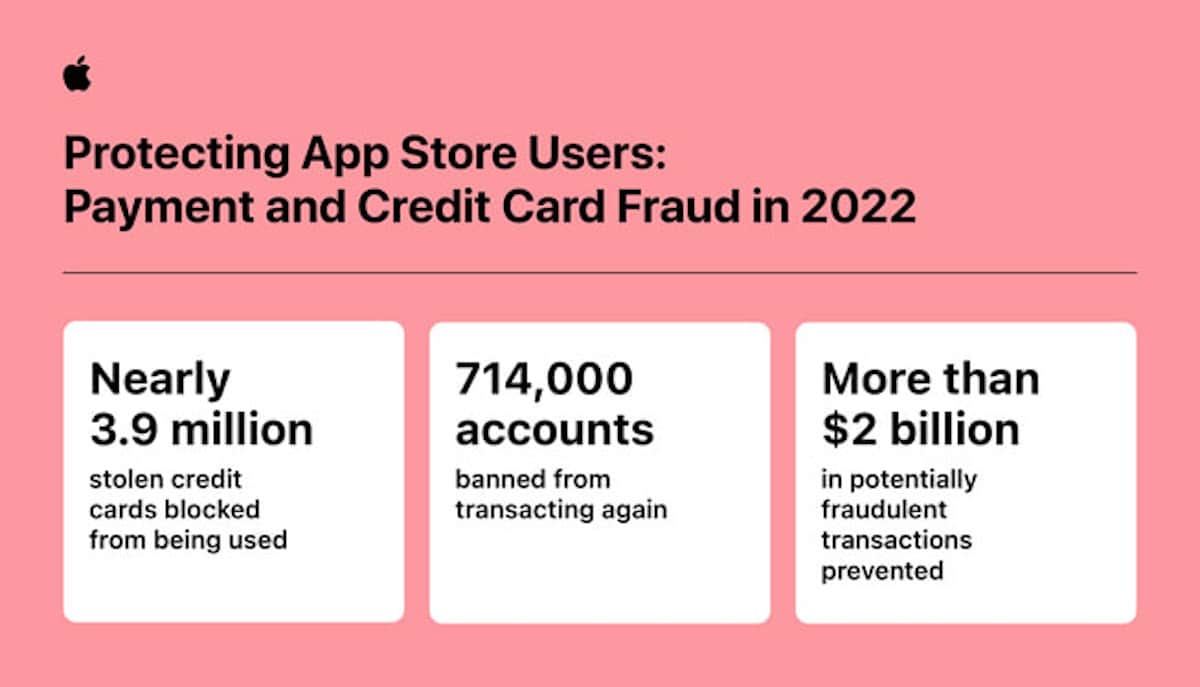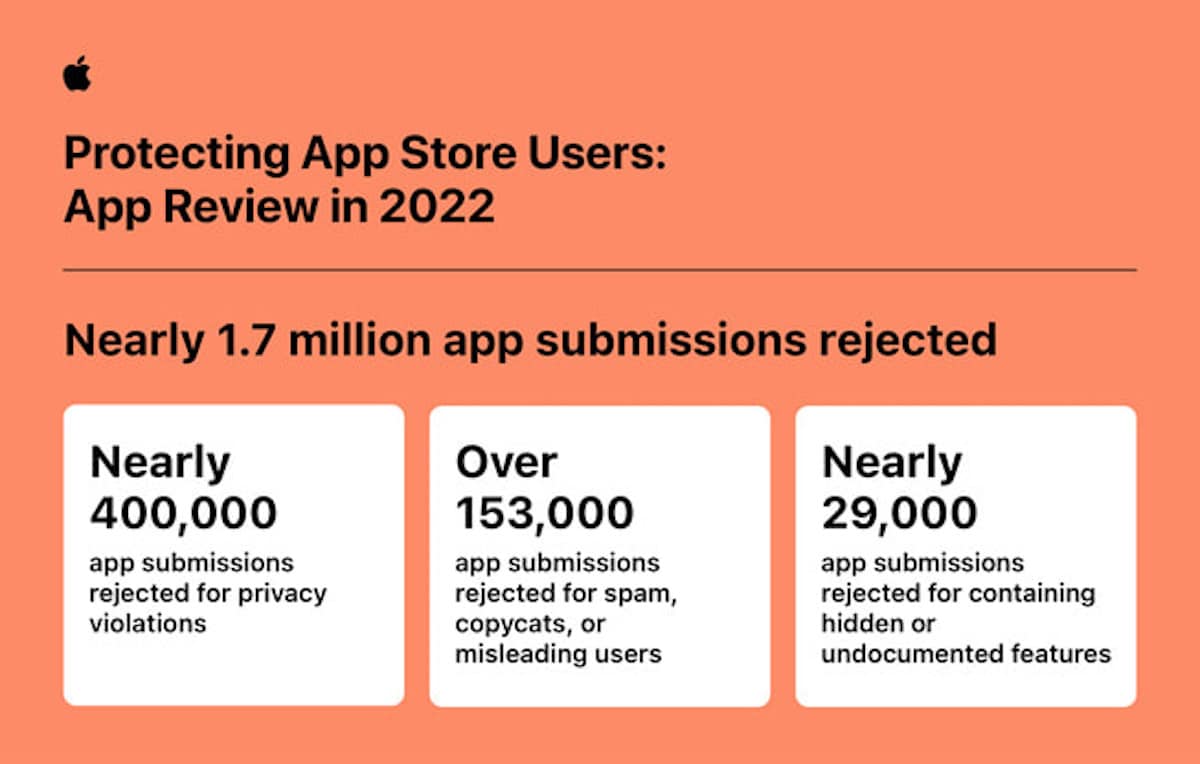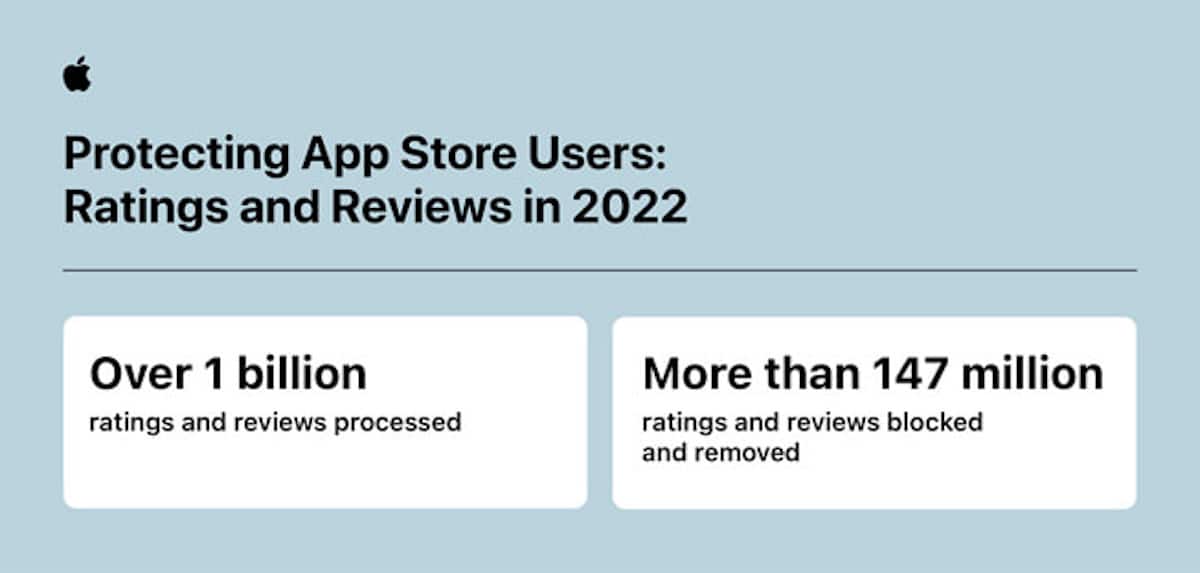The Cupertino tech giant has published a new report detailing how its security features successfully stopped over $2 billion in fraudulent transactions, rejected 1.7 million apps and prevented other malicious activities in 2022 to protect the privacy and security of developers and users.
App Store was launched in 2008 as a safe and secure digital marketplace for developers to offer their products and for users to discover and download them. To preserve the sanctity of the App Store, the company has devised various measures like reviewing apps and ratings and reviews to detect and deter fraudulent or scam apps and accounts.

Apple builds a strong case in support of App Store on iOS to protect developers and users
According to the report, App Store’s new security methods and protocols facilitated the following actions against account fraud, unsafe apps, fraudulent ratings, reviews and payment, and credit card fraud in 2022:
- Blocked a record $2 billion in fraudulent transactions by stopping the use of nearly 3.9 million transactions through stolen credit cards and banned 714,000 fraudulent accounts from transacting again.

- Rooted out 428,000 developer accounts and 282 million customer accounts for fraud and abuse, a significant decrease from 802,000 fraudulent developer accounts detected in 2021.
- Protected users from approximately 57,000 untrustworthy apps from illegitimate storefronts. In the last 30 days alone, App Store blocked 3.9 million attempts to illicitly launch apps through Developer Enterprise Program.
- Disabled more than 282 million fraudulent customer accounts.
- Rejected nearly 1.7 million app submissions over concerns of fraud and privacy out of over 6.1 million app submissions made last year.
- Blocked and removed 24,000 apps for bait-and-switch violations.

- More than 147 million fraudulent ratings and reviews were blocked or removed from the App Store out of over 1 billion ratings and reviews processed in 2022.

Although Apple App Store has security protocols to prevent fraud, malicious apps do exist on the marketplace in a significantly large number which rob users of millions of dollars every year. Their existence has given a reason for questioning the 15% – 30% commission Apple charges for in-app purchases through the App Store from developers.
Apple explains that the revenue earned through the commission is used to finance the service App Store offers to developers and users which are imperative to ensure their security and privacy.
But based on the number of malware apps on the App Store, developers argue that the App Store Review process and other security protocols are ineffective. Therefore, the commission charged for in-app purchases and App Store must be abolished. Critics also have legislators support who are pushing tech companies to allow sideloading on their operating systems.
In the face of pressure from developers and regulators, this report supports Apple’s case against sideloading and preservation of the App Store security measures.